Toscana & the simple act of existing in Italy
Breathing with the land, living without hurry — what Italy knows that we forgot.
We think magic is synonymous with the instantaneous. On the contrary, unlocked within the decision to consciously slow down is the supernatural, by way of being superbly natural. Cooking, dancing, lovemaking, driving, sipping, gardening, listening, aging, walking on the beach, all of these are best enjoyed in their slowest iterations.
That first deep breath is everything, isn’t it? Try it as you read this article.
We know what’s good for us and yet we willingly forget. We speed back up out of fear or pure habit. But let me paint a different picture for you, one that I’ve been living and one you can find for yourself too.
In this third edition of Italia - Season 1, I offer you my word and my reassurance. Tuscany as a region is a microcosm of the overarching Italian affectation — a full embodiment of the idea that anything good in life takes time.
Somewhere along the line, it creeps in without a word, like the shadow of a cypress tree at golden hour. It settles with the afternoon sun, hums in harmony with the chirping of swallows, and roots itself within the rhythm of the land.
This kind of living doesn’t announce itself. It reveals itself in stillness and song.
The first seed of stillness was planted in me in a place you’ve never heard of — Radicofani — where the trees exhale ancient perfumes in the night, and the town could be walked end to end in just ten minutes. But then, a revelation fully bloomed on a hillside farmhouse in another distant location. The Fadanelli vineyard of Lamporecchio.
Before Tuscany fully embraced us, we were already on the path.
From our adventures around of Sardinia, we returned to Rome, rented a tiny blue stick-shift Lancia (that’s an Italian car brand), and followed instinct over itinerary. Our one and only plan was to work our way up to Florence.
But when you have 6 more weeks in Italy, and the entire region of Tuscany ahead of you, eventually you ask yourself:
What if… we actually just take it slow?
Our first pause was in Lago di Bolsena, the last breath of Lazio, an unspoken secret two hours north of Rome. An overnight godsend where a lake of epic proportions held its own weather and offered sunsets like you’ve never seen.
Already, one could sense a geographical shift going hand-in-hand with your mentality.
Only 3 miles (5km) away from the regional border, where Lazio would melt away and Tuscany would begin…
CHAPTER 1: The Epiphany of Radicofani
It’s the following morning and suddenly you’re traversing rolling, golden hills. Abundant they stretch, out toward every corner of the horizon reaching as far as the eye could see and beyond into your imagination.
You follow the map and get off the highway and get on a side road that leads you onto a gravel path, bouncing you downhill then back up again, shifting into 2nd gear and praying that nobody’s coming around that bend up ahead, because this has to be a one-way street, right?
An army of olive trees stand at attention in every direction, each one twisted like a dancer in mid-pose, the sun drenching everything, everything in sight, and bugs buzzing happily, you feel there is a madness and a magic intertwined here.
But then you arrive and you pull up to a romantic stone house that’s been placed in the perfect spot as a vantage point over the hills of gold, and suddenly you forgive the gravel road for bouncing your teeth around and you get out of the car and breathe pure Tuscan air and something very gentle starts to speak to you.
There is peace in silence and God must be one and the same.
When night fell upon Podere Pietrata1, I stepped out alone. The gravel whispered underfoot and soon I found a place to sit.
This is what I wrote down:
“The quiet of the night is good for you. When you stand under a tree and look up, you feel it growing. You sense it expanding, like the universe. The trees like the sunlight of the day, but they dance in the night together. They breathe relief in the night.
Soft winds move their leaves and the pale blue sky is mixed with grey, absolutely still except for that single star that pokes out and twinkles. Crickets and distant dogs tell us there is life elsewhere. Here, only soft wind and ancient trees breathing.”
It was my errand to find dinner. Pops had drifted asleep. I drove into town and circled medieval stone streets. Just one restaurant was open, the one I first saw — a modest, handwritten menu taped to the glass door, inside just a few tables, red furniture, family photos, and a TV blaring a local soccer match. I ordered a steak and salad. The hostess brought me a toasted bread I never ask for, soaked in olive oil, kissed with black pepper. The chef then brought the steak and salad himself and smiled: “Vai.” Go.
The salad was humble—bodega style lettuce (a.k.a. overly chopped and overly pale), sliced zucchini and tomatoes—but I finished every single bite. Every morsel. It felt like a contract of gratitude. The other diners seemed to notice. There was a young, pierced couple in the corner. Two older women deep in conversation. And a single dark-haired woman with an onyx ring, eventually joined by a blue-eyed, loud-mouthed, pot-bellied man with dirty work boots. A tired tradesman who still found the energy to be boisterous, maintaining a side-eye fixated on me, trying to figure out: “Who the fuck is this guy?”
When I gnawed the final meat off my steak and the bone clanked against my plate, his posture softened and he turned toward his companion. The air calmed. It was like I had passed the test. He went out for a smoke and never came back again.
I ordered an espresso, despite the church bells ringing out how late it had become. I drove back to the farmhouse in the dark, anticipating the moment my headlights would sweep silently over the ancient, perfumed trees.
CHAPTER 2: The Architecture of Rest
Up north nestled between Florence and Lucca, there is a town called Vinci. Indeed, the very birthplace of our lord and savior, Leonardo.
If you stop in Vinci, there is a small park with a statue, a beautifully manicured plot of grass, various shaded benches, and a wonderful breeze. What made it different from any other park you may find scattered across Italy? Well… nothing. There are so many parks like this.
But as we sat to catch our breath, to decompress from driving, to savor the silence of the afternoon… the simplicity of the experience signaled suddenly: I belong here.
In this moment, my body was still and calm and mind was flooded with realization.
“The simple act of existing in Italy (from an American perspective): Roundabouts instead of intersections. Shaded rest stops on the highway. Courtyards that don’t demand, but invite. A tempo that encourages transformation through stillness, not speed. Sitting in parks under trees and breathing deeply… Here and there, on street corners and through shop windows, you hear people speaking forcefully, yes. But there’s harmony, in the drama, and a passion for living. The land is metaphysically different and society has shaped itself to honor that fact, like the vine did so with the sun.”
In Italy, you feel yourself changing, even if only a little.
CHAPTER 3: The Family Vineyard
We were meant to stay 6 nights at Agriturismo Fadanelli.
But we loved it so much, instead we stayed 9.
Upon arrival, a gentle man named Michele emerged from his house, moving like a breeze, smiling softly, almost imperceptibly. He was slender and unhurried with steady eyes and hair toasted brown. His hands calloused from the land did not try to squeeze yours into oblivion, instead they welcomed you. A man of the earth, and for the earth, I don’t believe I had ever come across a soul without such pretense.
Across from the family casa was the guest lodging. Quiet and clean, tiled floors to cool your bare feet, windows framing vineyard views like frescos in 360. You had to blink twice just to believe it. A turquoise pool shimmered nearby. And the Fadanelli house across the gravel with its modest garden just bursting in the sun.
Everything about the place was functional, beautiful, and unadorned. It wasn’t curated to impress. It was built to live in. The kind of space where nothing was wasted, and everything was exactly what it needed to be.
A painted tile hung beside the doorway to our room — “Il Rondini” — the swallows.2
Each morning, Elena, Michele’s 83-year-old mother, threw open the shutters.
At first, her eyes wouldn’t register us. Then, she would wave and smile, as if recognizing old friends.
We would grin and return the favor.
A simple thing like this became our daily ritual. A bond. An unspoken blessing.
Tullio, Michele’s father, had his own rituals.
Every night with cigarette in hand, he would step outside in a white tank top and touch the plants gently, inspect them, then look over and see me working. Always, I stopped what I was doing, smiled, and waved. In synchronicity, he would give a thumbs up and chuckle, his snow-white hair immaculately thick, the kind of hair a man must earn.
One evening, he lingered just a bit longer.
He leaned in close to a rose, touched its petals, held them between two fingers like a secret. He took a slow drag of his cigarette, then looked up at the sky. Not urgent nor not expectant. Just aware. Fully aware. It was that gaze that moved me. Like Time itself had finally taken a seat beside him.
Together they were a family in rhythm. Unbothered and protected.
CHAPTER 4: A Cathedral of Tools
One sweltering afternoon post-Florence, I dropped Pops at the front of the house and swung the car around to park it further beneath the shade of some stone pines.
When I parked, Michele appeared from the barn. I recognized my opportunity to strike up a conversation.
I inquired genuinely about the land and the family origins. They had come from a place called Trento in the north and purchased this land in 1980 when Michele was about 10 years old. In the beginning, there was nothing. It was Tullio and his only son who had toiled together to plant it all. In the heart of the farm, there was the vineyard. Taking up more than 50% of the land, harvesting Sangiovese grapes for red, white, and a rosé dessert wine known as occhio di pernice or “eye of the partridge.” The remainder of earth was guarded circumferentially by our good, old friends the olive trees.
Naturally, I wanted to know the process of everything and next thing I knew, we were casually strolling toward the barn—a structure that felt unassuming on the outside, but became a cathedral within.
The roof soared and the air completely changed.
Michele showed me:
• The olive harvesting poles, with comb-like attachments that vibrate to strip the branches.
• The grape tanks, including one open basin with a massive bladed spindle.
• And then his father’s first tractor, a 1976 orange FIAT, very worn but still alive.
“Quello è stato il primo trattore di mio padre. Lo usiamo ancora,” he said.
Dust particles floated like incense. Here was a house of work and commitment.
That night, I knocked on their front door to buy a bottle of wine.
Elena arrived, only to point me over to the window. Inside I found Tullio in his study, Michele standing beside him, both pleasantly surprised to see me.
The study, like everything else, was modest—well-worn wood, old books, family photographs.
Michele told me to enter through the front. I saw him leave the study and go beyond into a room that was enclosed by beautifully large, glass double doors. To me, they resembled the pearly gates.
Now Elena beckoned me in and proceeded to show me a framed photo of the property from the past — an aerial point of view.
“E qui che tutto è iniziato,” she said.
Vines young, the guest lodging still rubble. No pool yet. But the vision already alive. There was a pride in her voice and the way she pointed to the photo. Not the least bit boastful. A true pride that says: "We worked. And it grew."
Michele appeared from beyond the pearly gates with a bottle of red, “Per la cena.”
CHAPTER 5: Into the Vines
One evening, I wondered what lay beyond the barn. So I wandered down the gravel until it became dirt, sloping and winding its way into the vineyard.
I was all alone. Just the vines and me.
The light was lovely, the earth so warm, the air rapturously fragrant. My flip-flops were ridiculous, but the dirt was soft and kind.
Each row of vines bore a tag: Regione Toscana, beside a rearing Pegasus about to take flight.
I kept on walking and noticed myself humming, singing like a kid.
Along the perimeter I found another sloping path and the sound of running water called out to me.
I followed it like a dog on the scent until it led me to the most magical place. Into a bamboo grove. Cooler by ten degrees, lush beneath the feet. Then the creek babbling off a stone bed opened into a waterfall that dropped into a clear pool over two stories below, not too loud, not too shy.
I danced to the edge. I sat. I listened. I closed my eyes and let the moment live. The bamboo clacked gently above me. The water swam past, whispering secrets from upstream. The air was thick with presence. Part of me did not want to photograph it. I just wanted to know it.
“I was in a loving shock, further into the dream. Alone, but not lonely. A place so full of life that I felt more whole by simply being near it.”
I thought of bringing my future wife, my children. Of letting them see what I now saw. It made me ponder the idea of staying. Of building a life in rhythm with this land. Letting it teach me how to breathe differently.
CHAPTER 6: Farewell Blessing
Michele had been up since daybreak and he came to say goodbye.
“Can I take a family photo to remember you by?” I asked.
“Si, si,” he said and escorted us slowly across the gravel toward the casa to take a commemorative picture.
Pops lit up with a smile, honored to enter their humble house.
Over at the end of the room, there were those double doors made of towering glass, morning sun shining through… the pearly gates.
Michele opened them.
Here lay the kitchen with a vaulted ceiling and another set of double doors leading back onto the terrace with a stunning view.
Tullio was already out back, almost like he was waiting for us. Elena arrived in a sparkly blue shirt with a butterfly on it. A farfalla.
The view from the terrace stretched across the valley, toward Lucca. The vineyard below glistened.
I turned to Tullio who looked at me calmly, expectantly. I told him in earnest I wanted to live in Italy, learn the language, the way of life.
“Sei più vicino di quanto pensi,” he said.
When it was time to go, Elena grabbed my wrist:
“Non lasciare che sia l'ultima volta. Torna a trovarci,” she demanded lovingly.
“Of course. And again and again!” I replied. We laughed, kissed cheeks, waved, stepped back into the sun. The garden. The gravel. The road. The rest of our trip.
But this would be the dividing line. A “before and after” Fadanelli.
⸻
Postscript:
In a world obsessed with acceleration, the Fadanelli family reminded me of a different kind of power:
The power of the gentle.
The quiet.
The daily.
The rooted.
Maybe the good life isn’t something you chase. Maybe it’s something you cultivate.
Like grapes. Like olive trees.
Planted in good soil.
Tended with care.
Trusted to grow.



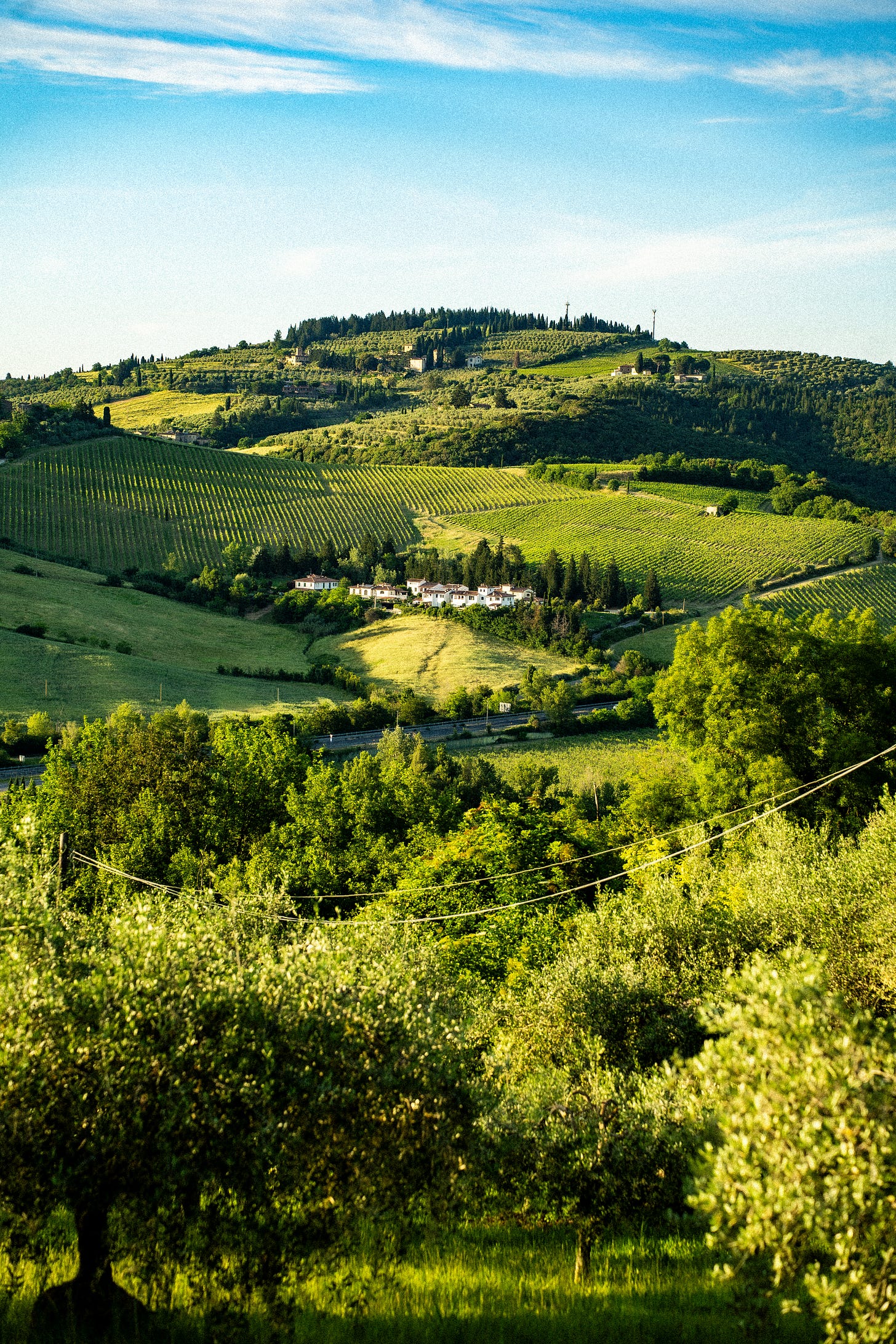
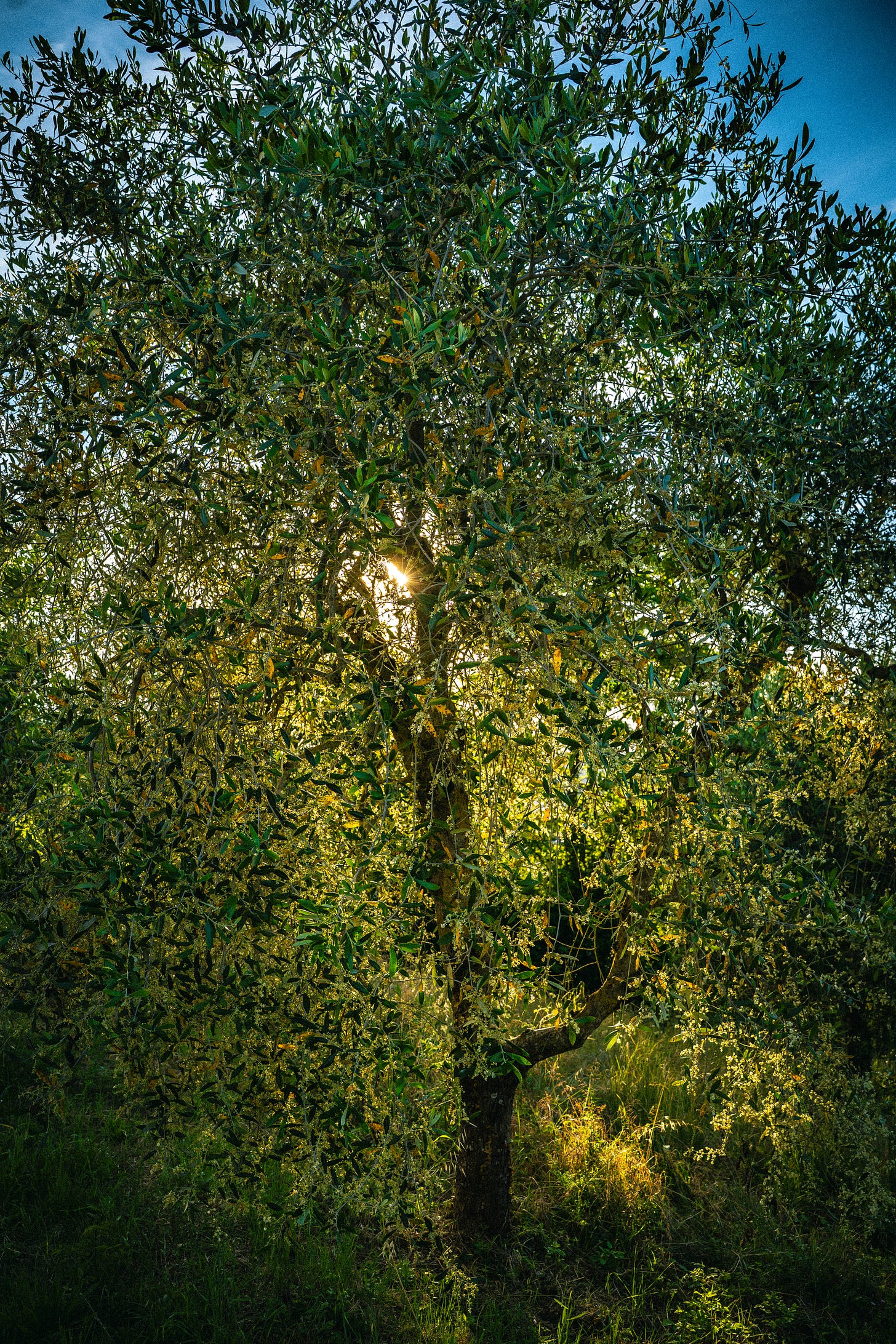
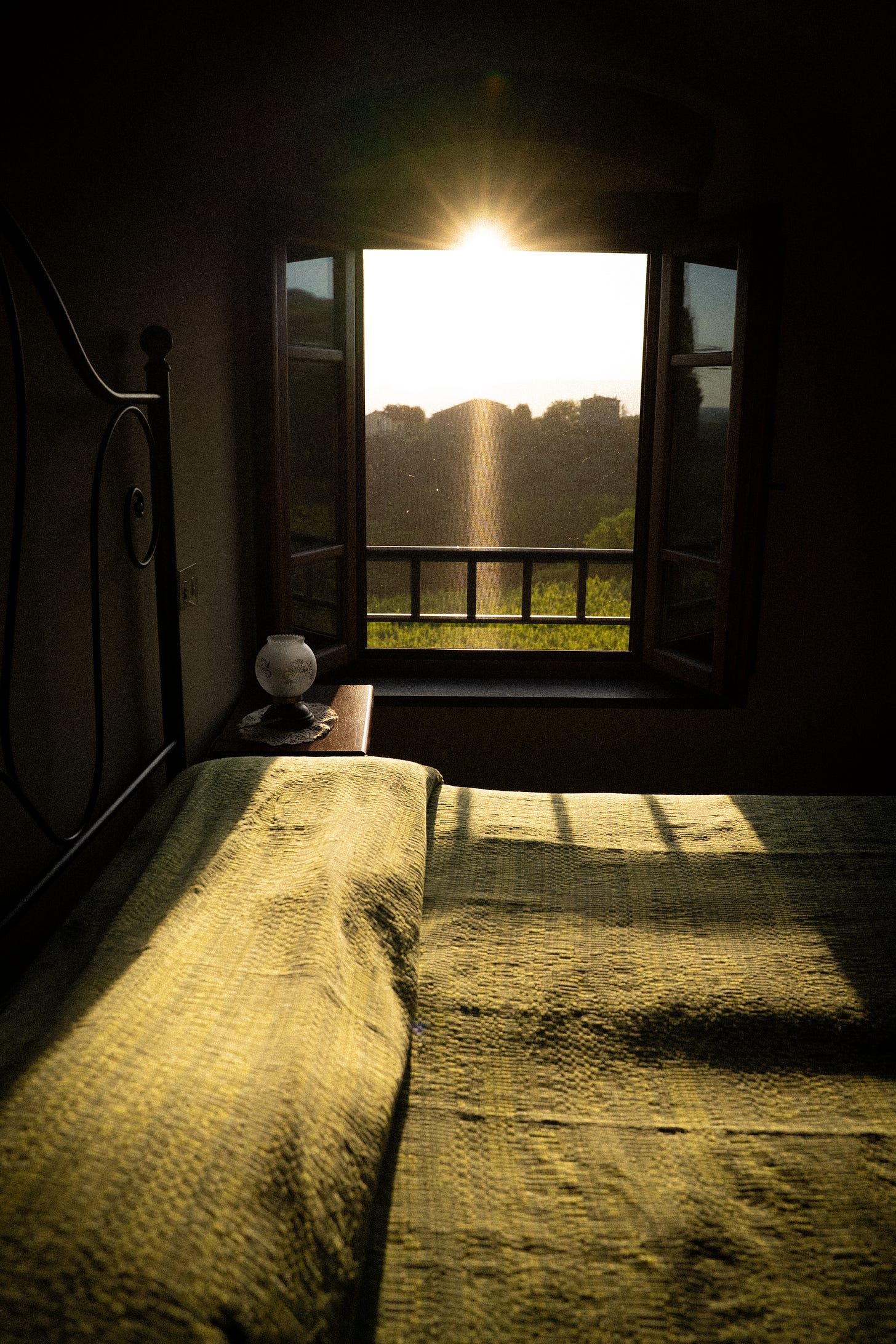

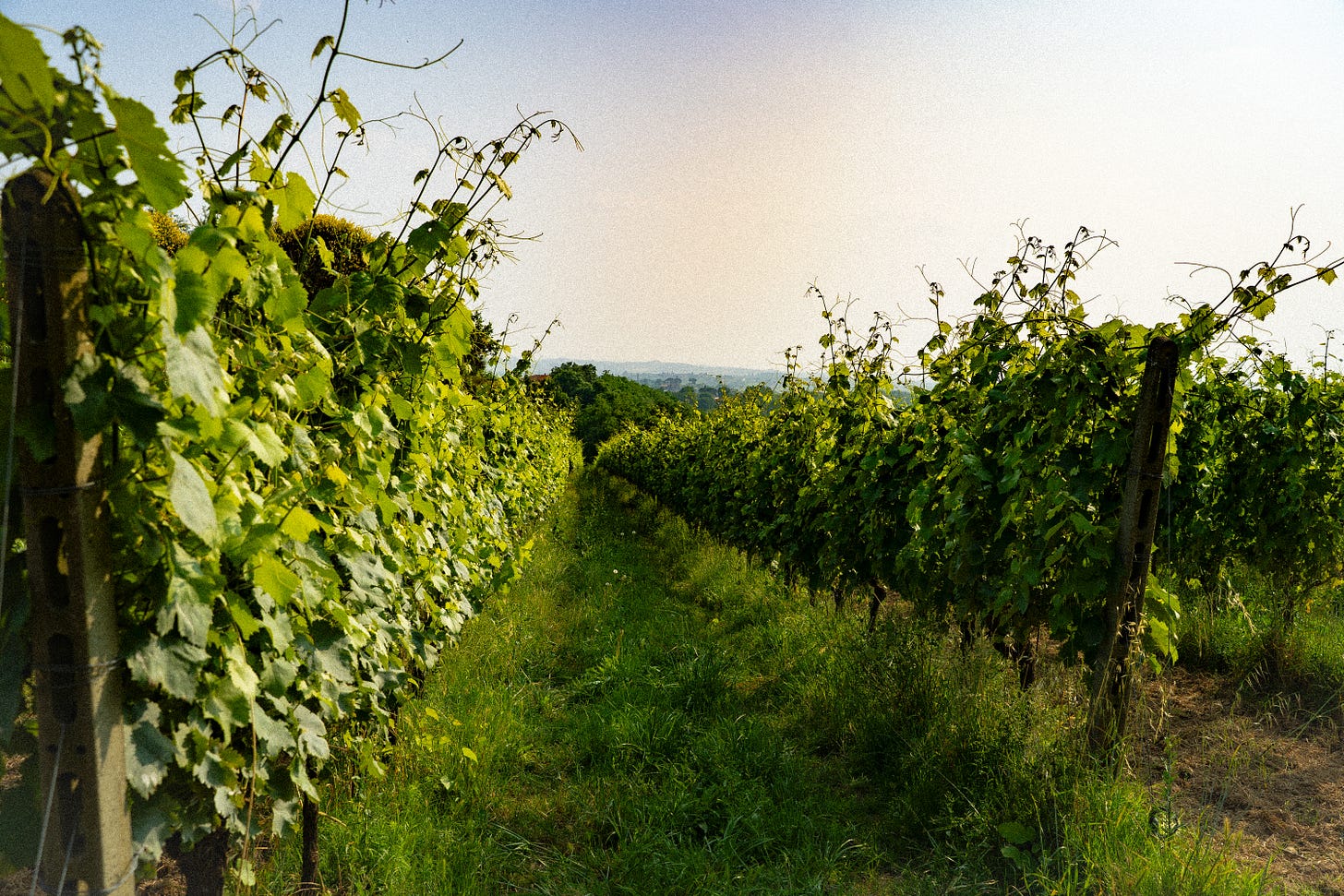
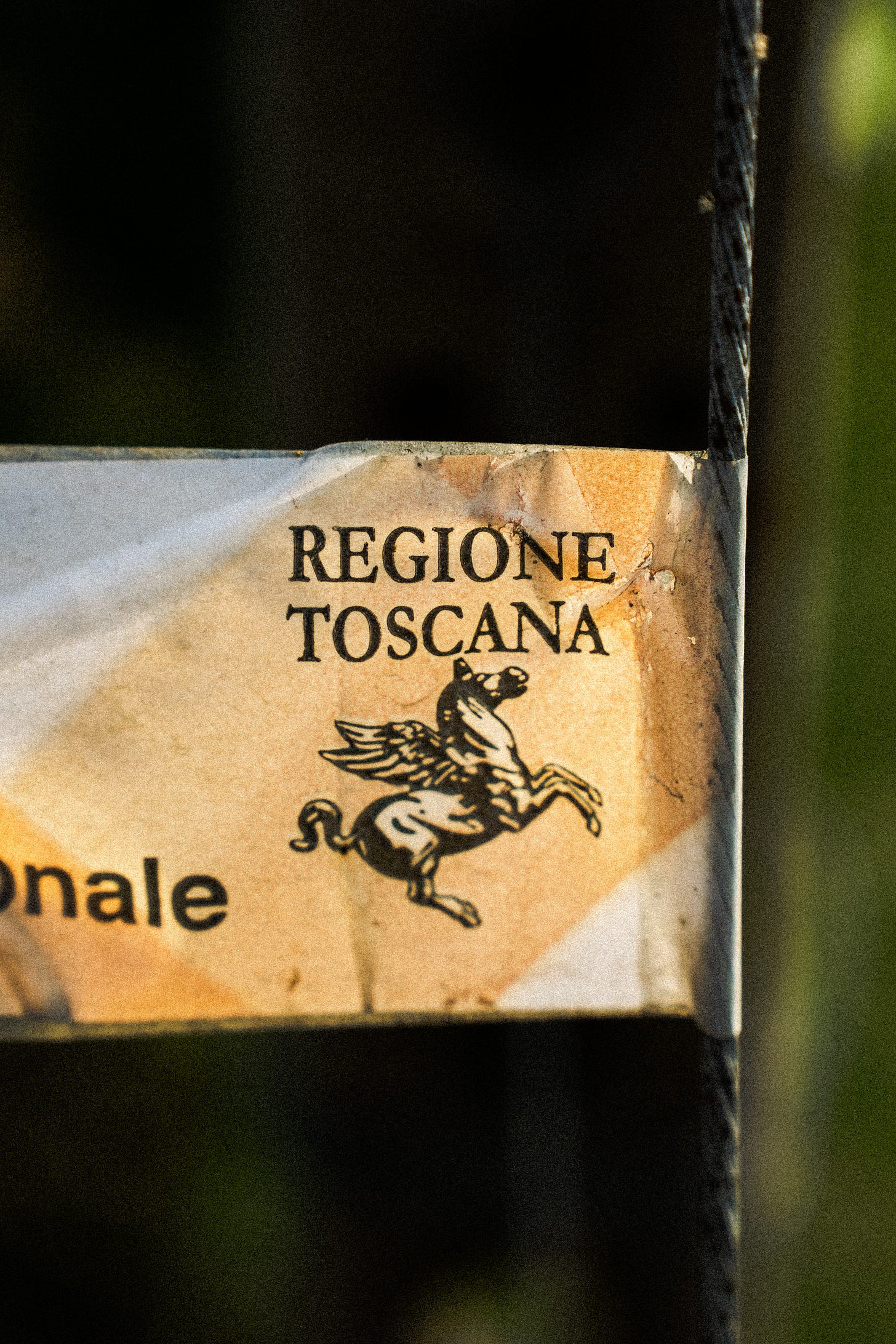
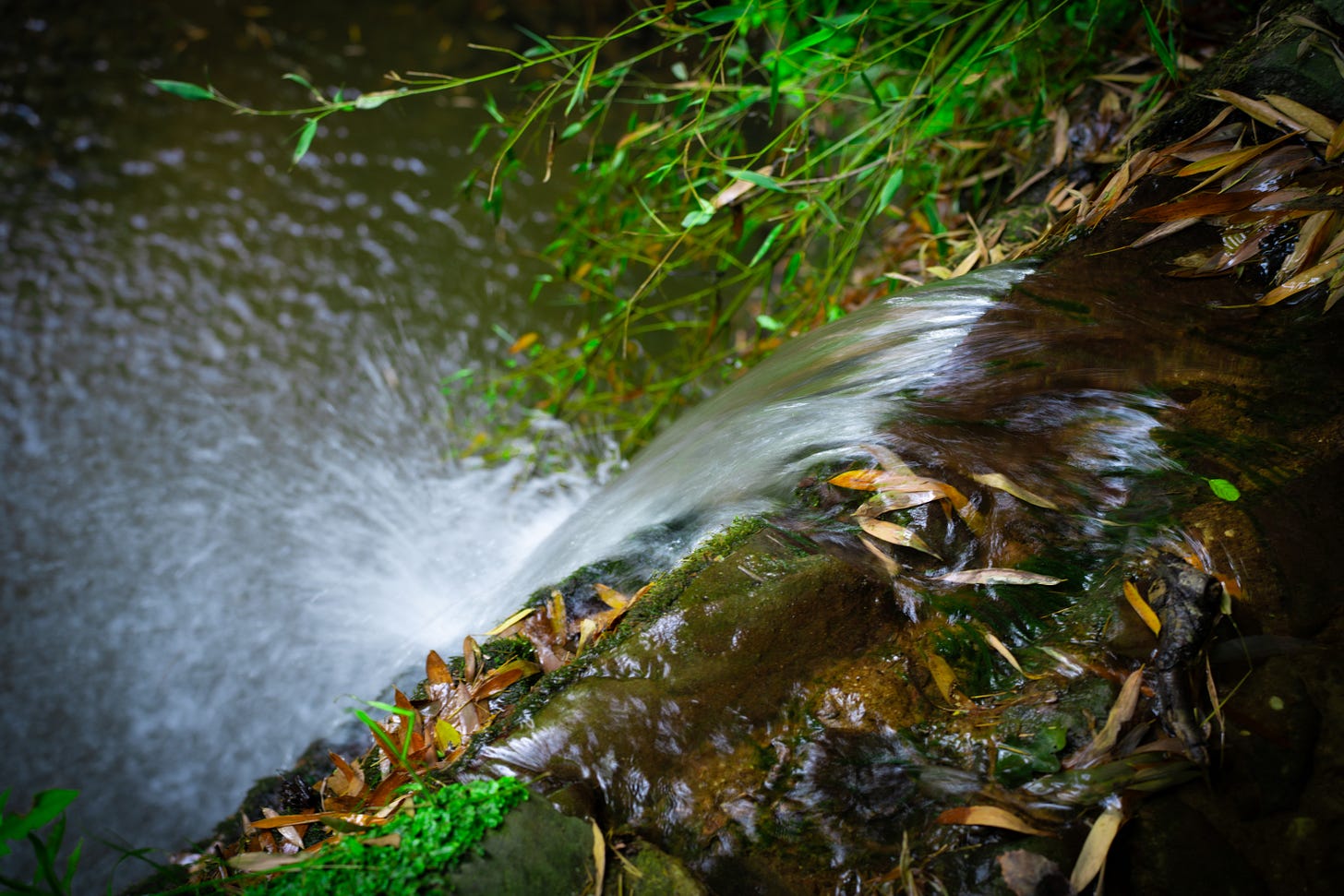
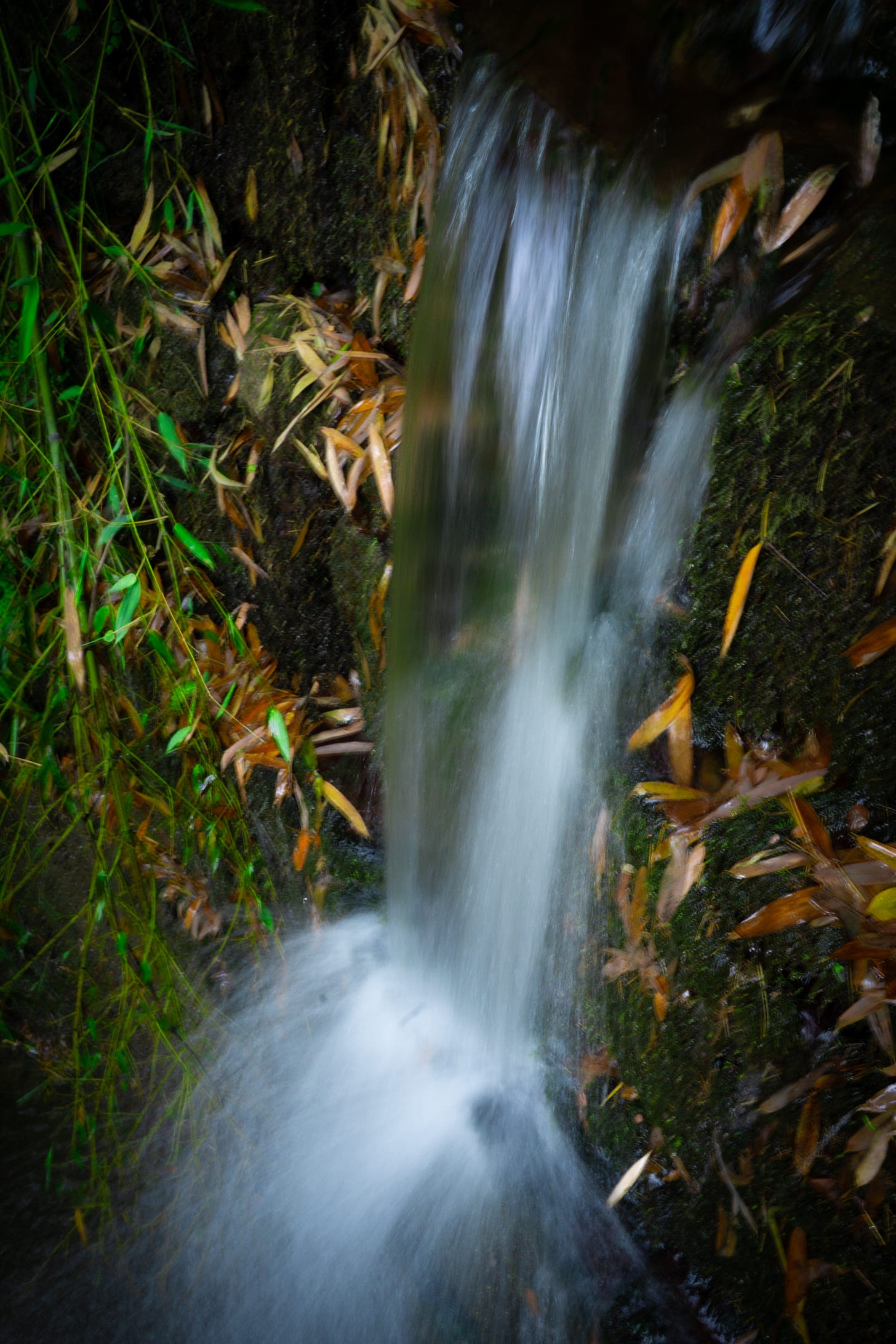
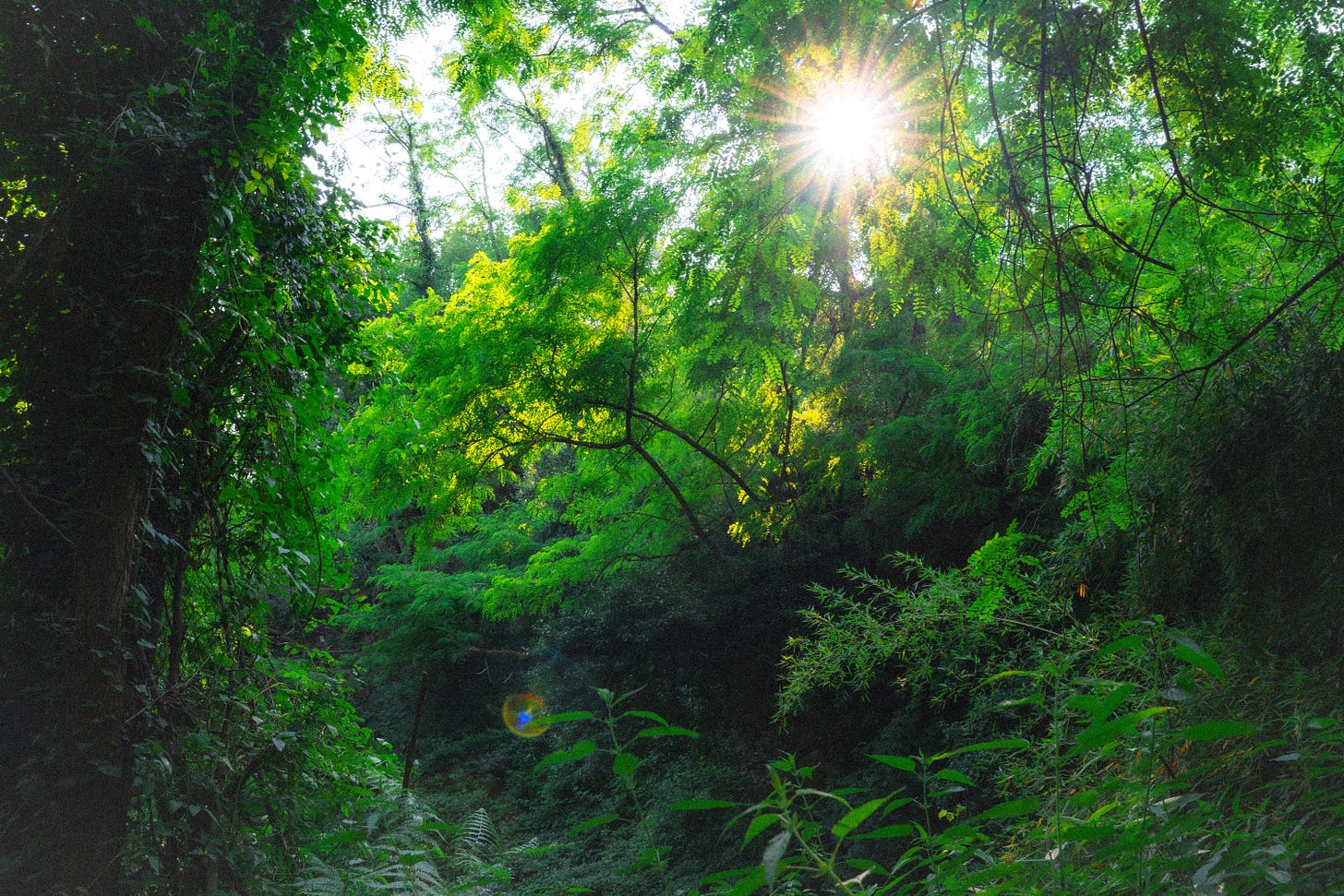
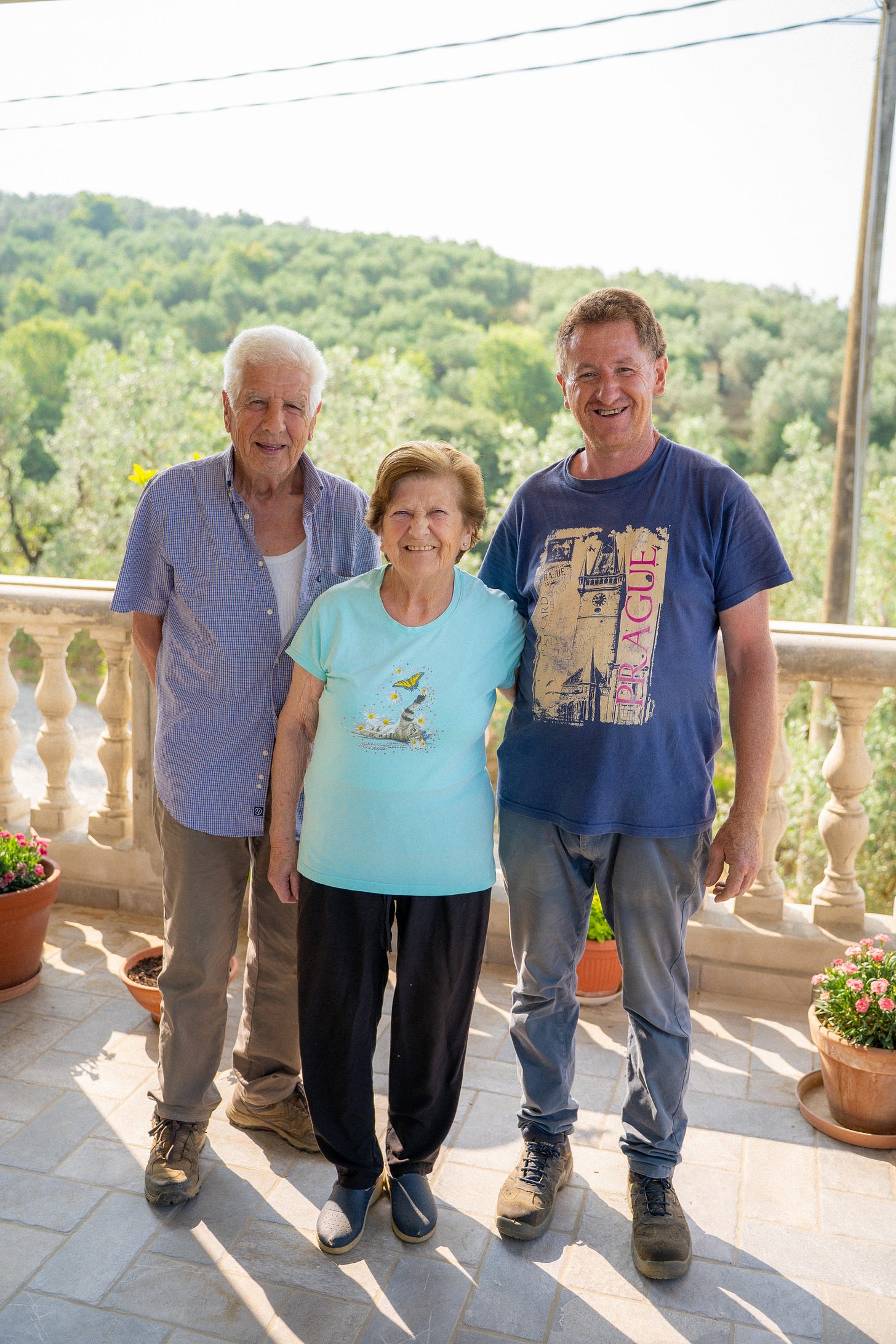
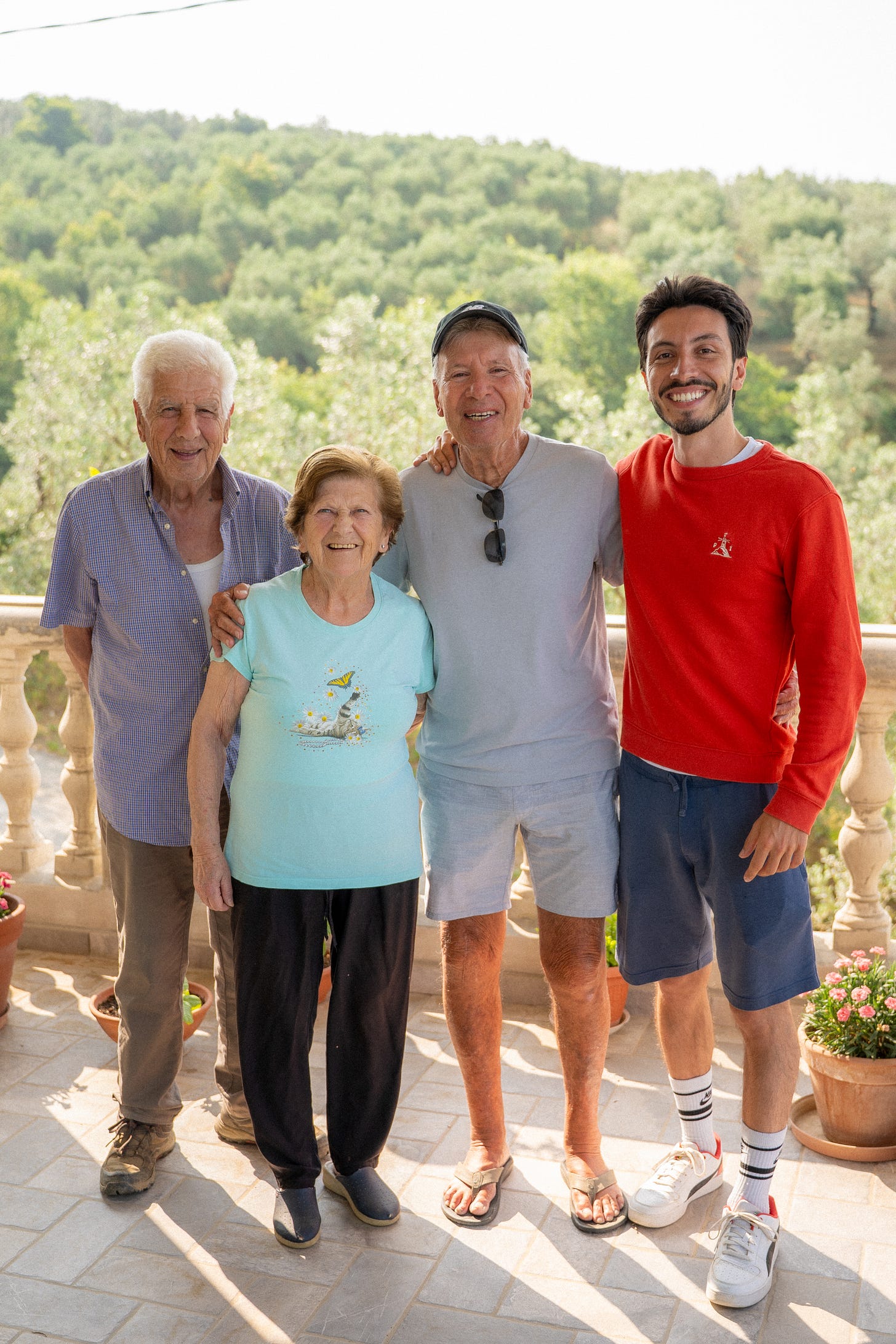
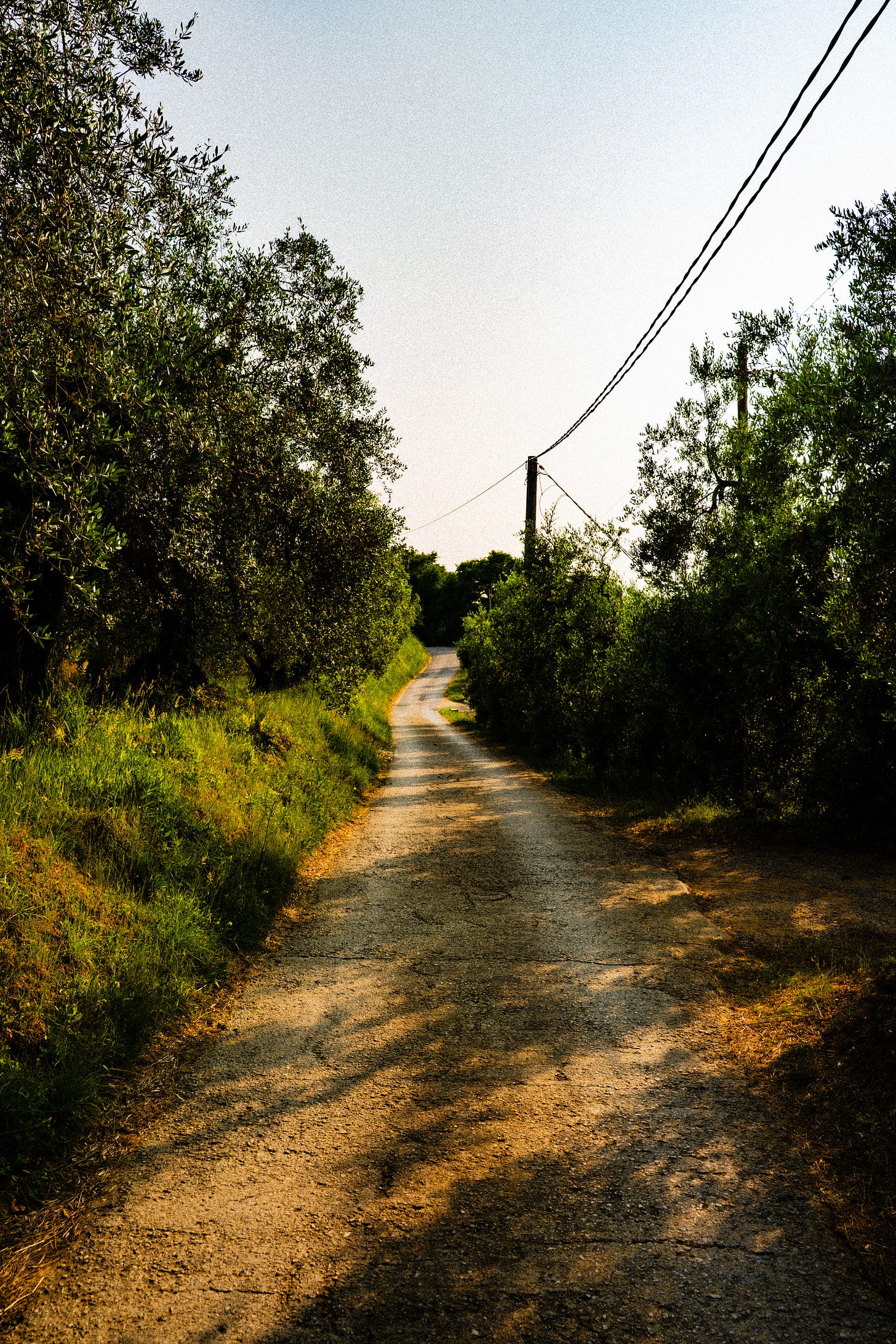
So beautifully written. Your explanations and descriptions of Italy’s unique geography, of the native people with their welcoming and kind personalities, this all leaves the reader with a strong desire to get on a plane and leave for Italy tomorrow!
Sent this by accident before completed.🤦♀️